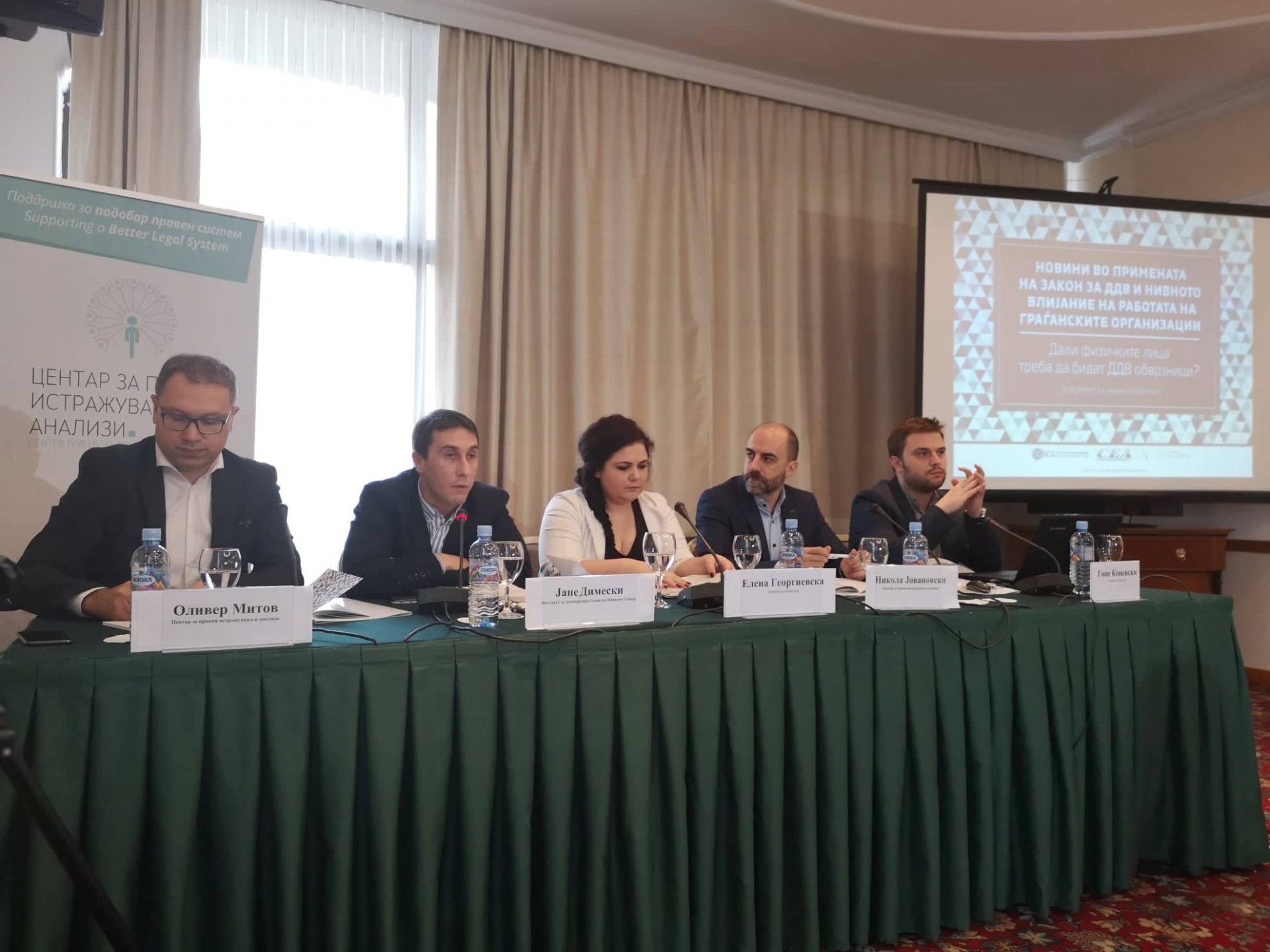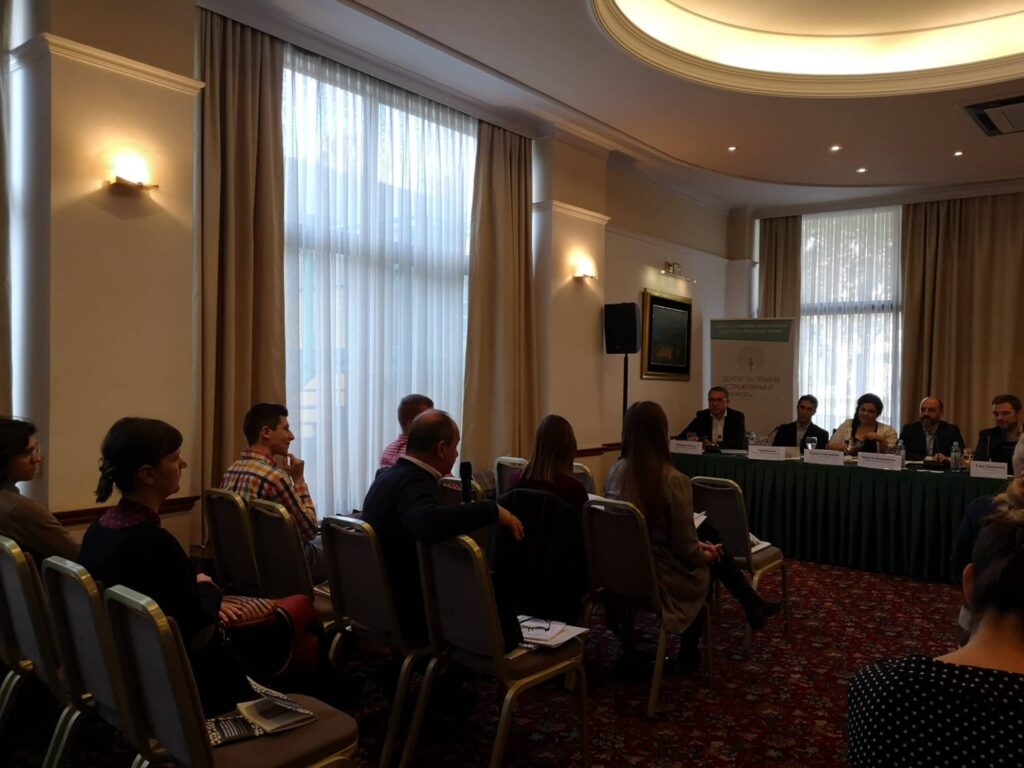
Тhe Center for Legal Research and Analysis on 23 November 2018 has promoted the policy paper “Novelties in the Law on Value added tax and its impact on the work of CSOs”.
Nikola Jovanovski from CLRA briefly explained that the analysis is particularly important since it is focusing on the legal basis for answering the bitter questions, such as the issue of individual who is conducting economic activity being tax payers, is that double taxation, as well as the justification of lowering the limit for tax payer registration from 2.000.000.000 to 1.000.000.000 denars, without conducting relevant assessment by the Ministry of Finance.
Jane Dimoski from the Institute for Democracy “Societas Civilis” explained the meaning of the RIA process in defining the short term and long-term impact of the legal acts on the national legal system, and added that this is the only way to gather relevant data for the negative and positive impact in the legal system.
Oliver Mitov, project manager at CLRA presented the project activities that lead to the creation of this comprehensive policy brief.
The authors of the document, Goce Kocevski I Elena Georgievska presented the document and explained its purpose in detail. Namely, the document is analyzing the current legal framework as well as the tax policy regarding individuals as tax payers for value added tax, but at the same time gives recommendation for filling the gaps for conducting the regulatory impact assessment process.
They also explained that the document is identifying the implications from taxing individuals with value added tax, the negative aspects from the implementation of the law, and values the level of unification of the national legal framework in correlation with EU legislation. Additionally, they stated that the amendments of the law will have impact on the work of the CSOs especially since in certain situation they can conduct activities that will profit them and that can make them being tax payer for value added tax. This implication has indirect, but also powerful influence on the work of the CSOs, since hiring external experts is directly and sometimes necessary for CSOs scope of work. They also added that the CSOs are not, and should not be treated as enterprises, i.e. their non-profit characteristic should be viewed as public interest and public good.
The authors also added that the conclusion from the analysis is that certain measures must be undertaken, especially in strengthening the legal certainty from the implementation of the legal provisions related to individuals and tax payers. Also, they added that it is necessary to unify the provisions from the law that relate to the terms “tax payer”, “economic activity” with the EU Directive 2006/112, upgrading the limit for tax registration to 2.000.000 denars, as well as lowering the deadline for compulsory registration for value added tax payer from 5 to three years.
The document for public policy ““Novelties in the Law on Value added tax and its impact on the work of CSOs- Are individuals value added tax payers?” is part of the project “Action against more taxes”, which CLRA is implementing, and is part of the re-granting program “Regulatory Impact Assessment in the Shadow: Fostering evidence-based policy making in Macedonia”, implemented by IDSCS and CEA. The project is funded by the European union.


